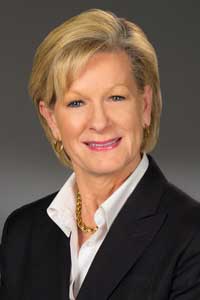Proxy access is back on the agenda and set to be a hot topic in 2015
The proxy access debate had been on something of a backburner since the SEC’s own rules for an industry standard were thrown out by a court in 2011.
But all that changed when James McRitchie, a long-standing investor in Whole Foods Market who also runs corporate governance website CorpGov.net, submitted a proposal giving shareholders the right to nominate directors if they held a 3 percent stake for three years – in line with the SEC’s original mandate. This conflicted with Whole Foods Market’s own proxy access proposal to allow a single shareholder owning 9 percent or more of the company for five years to put a director on the proxy. The SEC’s handling – or mishandling – of the situation also helped heat up the issue.
Recent months have seen an announcement from the New York City Comptroller, Scott Stringer, that he has filed 75 proxy access proposals at US companies, receiving backing from a number of institutions. Some asset managers have come out in support of proxy access, others clarified their approach; GE, followed by Citigroup, took steps to change its bylaws, with news of five new deals – at companies including Staples and Abercrombie & Fitch – reached by the New York City Comptroller this week. At the same time, ISS revealed a change in its own policy on the issue.

Pat McGurn, ISS
‘We’re not going to support management alternatives that don’t stay within the broad parameters of that SEC rule’
‘For the last couple of years we were wondering why there was such a low supply of shareholder proposals on this topic, given the fairly strong voting support it had received over the last couple of seasons,’ explains Pat McGurn, special counsel and head of strategic research and analysis at ISS.
While the proxy advisory giant had previously assessed proxy access proposals on a case-by-case basis – as Glass Lewis continues to do – ISS announced in February that it will now generally support such proposals.
‘You’ve got to remember that, prior to this year, no shareholder proposal proponents were proposing anything above 3 percent and three years,’ says McGurn. ‘But where we saw a number of issuers running to adopt thresholds that were substantially higher than those that had been included in the SEC’s [previous] rule, it led us to revisit our policy. Our new position is that we’re not going to support management alternatives that don’t stay within the broad parameters of that SEC rule.
‘We don’t want to see an ownership threshold higher than 3 percent, we don’t want to see a holding period longer than three years and there must be some level of shareholder aggregation, although we’ll consider a call for different levels of aggregation on a case-by-case basis.’
ISS would not support a proposal that expected a single shareholder to meet the entire ownership stake, for example, and McGurn notes GE’s recent bylaw change that set its aggregation limit at 20 shareholders.
‘The last moving part is the number of seats you can contest,’ he says. ‘The SEC rule said 25 percent and we want to see something in that neighborhood.’ While McGurn stresses that ISS is not necessarily stuck on that specific percentage, he adds that ‘if you go for 10 percent or one board seat, that’s not going to be acceptable’.

Anne Sheehan, CalSTRS
‘IR professionals should be talking to shareholders about their views on access’
Anne Sheehan, director of corporate governance at CalSTRS, says the fund, which holds $185.5 bn in assets under management, has long supported proxy access proposals ‘as a fundamental shareholder right’. Like McGurn, she mentions GE’s move to adopt a proxy access bylaw, taken on its own initiative.
‘It is clear this is becoming the de facto consensus preference of large institutional shareholders,’ she says. ‘Corporate IR professionals should be out talking to shareholders about their views on access, as it is the ‘hot’ topic of this proxy season.’ She adds that ‘companies should not be trying to subvert the will of shareholders by filing their own proxy access proposals that are stricter than this standard.’
This advice is echoed by McRitchie: ‘Talk to the proponent and your other shareowners. Proxy access is ‘on sale’ this year with opportunities that may never come again.’ In other words: you don’t want to miss out. He adds that most proxy access proposals – including his own more recent filings – contain language offering safeguards against key concerns that have been voiced by critics. Use for a ‘takeover’ is precluded, for example.
‘We are building critical mass this year,’ McRitchie continues. ‘Speaking for myself, I have been more willing to negotiate in order to keep the wins coming. Once the track record is wide and deep, I will be less likely to do so.’
Regardless of the outcome of the Whole Foods proxy access saga – not due to be voted on until September now – this is certainly set to be an interesting proxy season. ‘Suffice it to say, we’re going to see more proposals this year than we’ve seen over the cumulative period of the last three seasons put together,’ says McGurn.










